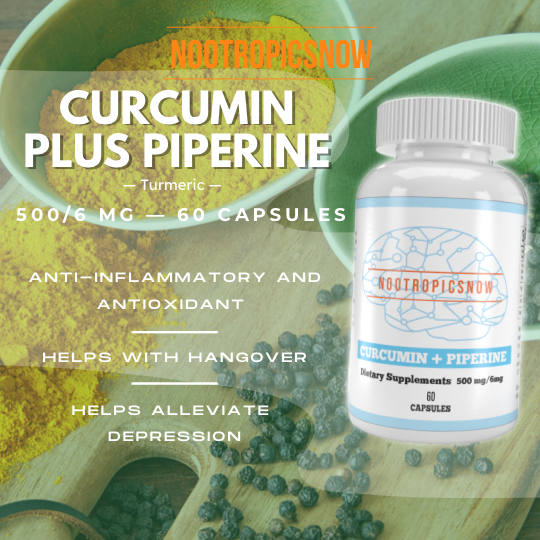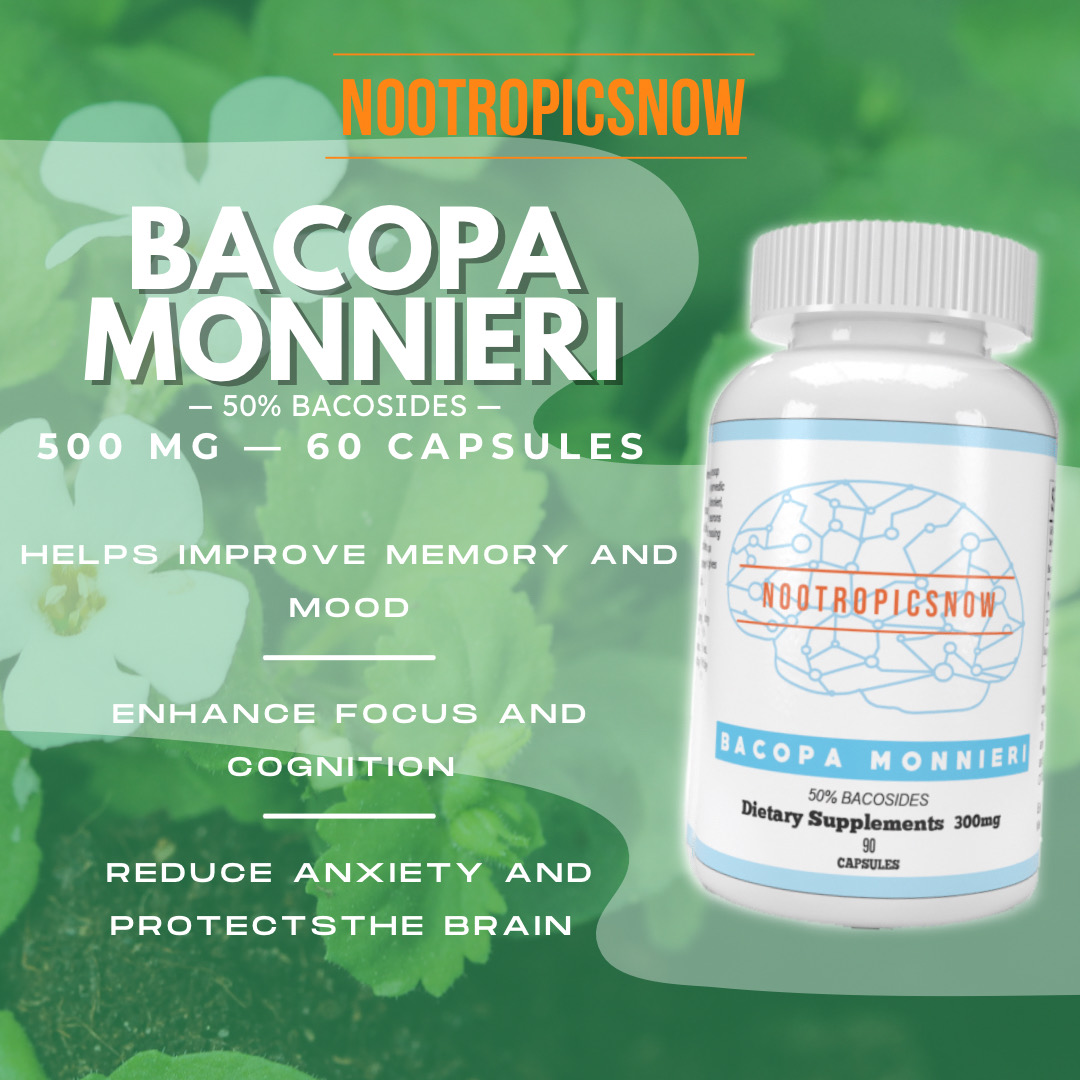Tynept 12.5 Uses & Benefits

`markdown
Tynept 12.5 Uses: A Comprehensive Overview
Tynept 12.5mg, containing tianeptine sodium, stands out as an atypical antidepressant exhibiting a unique mechanism of action compared to traditional selective serotonin reuptake inhibitors (SSRIs). Its therapeutic applications extend beyond just treating depression, encompassing a range of conditions that benefit from its neurochemical effects. So, what exactly are the uses of Tynept 12.5mg? This article provides a detailed exploration of its applications, dosage considerations, potential side effects, and precautions.
1. Treatment of Major Depressive Disorder (MDD)

The primary and most widely recognized use of Tynept 12.5mg lies in the treatment of Major Depressive Disorder (MDD). Tianeptine’s efficacy in alleviating depressive symptoms has been demonstrated across numerous clinical trials. Unlike SSRIs, which primarily target serotonin reuptake, tianeptine is believed to enhance serotonin reuptake in specific brain regions. This unique mechanism may contribute to its distinct profile of antidepressant effects.
Tianeptine modulates glutamatergic neurotransmission, which plays a crucial role in mood regulation. Moreover, it is essential to consider this effect, as it can normalize glutamatergic activity, contributing to mood stabilization. Consequently, many individuals report noticeable improvements in mood, energy levels, and overall well-being. For those grappling with the debilitating effects of depression, Tynept 12.5mg can provide a pathway to recovery and improved quality of life.
Understanding Tianeptine’s Mechanism in Depression
Tianeptine’s mechanism of action differs significantly from traditional antidepressants, contributing to its distinctive therapeutic profile. It is thought to enhance serotonin reuptake in certain brain regions. Additionally, research suggests it modulates glutamatergic activity and enhances neuronal plasticity. As a result, this multifaceted approach may offer advantages in managing depression for some individuals.
Clinical Evidence Supporting Efficacy
Clinical trials have consistently demonstrated the efficacy of tianeptine in treating depression. Studies show it can be as effective as some tricyclic antidepressants and SSRIs in alleviating depressive symptoms. However, it’s crucial to note that individual responses to antidepressants can vary, and Tynept 12.5mg might not be the ideal choice for everyone.
Consider exploring alternative options like St. John’s Wort for managing mild to moderate depression:

View Product
2. Management of Anxiety Disorders
Beyond its antidepressant properties, Tynept 12.5mg also exhibits anxiolytic effects, making it useful in managing various anxiety disorders. Generalized Anxiety Disorder (GAD), social anxiety disorder, and panic disorder are among the conditions where tianeptine may offer relief. Its ability to modulate neurotransmitter systems involved in anxiety, such as glutamate and serotonin, contributes to its anxiolytic effects.
For those seeking natural anxiety relief, consider exploring options like L-Theanine:

View Product
Tynept 12.5mg can help reduce excessive worry, nervousness, and other anxiety-related symptoms. It is particularly useful when anxiety coexists with depression, addressing both conditions simultaneously. For individuals burdened by chronic anxiety, Tynept 12.5mg can provide a valuable tool in regaining control over their emotional well-being. Thus, many find its dual action beneficial.
Benefits for Specific Anxiety Disorders
The Role of Glutamate in Anxiety
Glutamate, the brain’s primary excitatory neurotransmitter, plays a significant role in anxiety disorders. Tianeptine’s modulation of glutamatergic activity helps restore balance in the brain, reducing anxiety symptoms. This mechanism differs from benzodiazepines, which primarily enhance GABA activity, offering a different approach to anxiety management. For a natural way to promote relaxation and reduce anxiety, you may also want to consider Phenibut:

View Product
3. Potential Benefits in Irritable Bowel Syndrome (IBS)
Although not a primary indication, emerging research suggests that Tynept 12.5mg may offer benefits in managing Irritable Bowel Syndrome (IBS). IBS is a chronic gastrointestinal disorder characterized by abdominal pain, bloating, and altered bowel habits. Studies indicate that tianeptine’s effects on the nervous system, particularly its modulation of serotonin, can influence gut motility and reduce visceral pain perception.
How Tianeptine May Alleviate IBS Symptoms
Tianeptine’s modulation of the serotonin neurotransmitter system can influence gut motility and reduce visceral pain perception. Serotonin plays a significant role in regulating gut function. Therefore, by influencing serotonin levels, tianeptine can help normalize gut motility and alleviate abdominal discomfort. Further research is needed to fully understand the extent of these benefits.
Research Insights
4. Analgesic Properties and Pain Management
Interestingly, Tynept 12.5mg has demonstrated analgesic properties, suggesting its potential in pain management. It has shown promise in alleviating neuropathic pain, fibromyalgia, and other chronic pain conditions. The mechanisms underlying its analgesic effects are thought to involve the modulation of neurotransmitters involved in pain perception.
Tianeptine might enhance the descending pain inhibitory pathways in the central nervous system. This can effectively reduce pain signals reaching the brain. For individuals struggling with chronic pain, Tynept 12.5mg could offer a valuable adjunct therapy to improve their quality of life. Further investigation is necessary to confirm these effects and establish its role in pain management. For natural anti-inflammatory support that may help with pain, consider Curcumin:

View Product
Types of Pain Where Tianeptine May Offer Relief
Mechanisms Behind Pain Relief
5. Potential Role in Cognitive Enhancement
Although research is limited, some studies suggest that Tynept 12.5mg may possess cognitive-enhancing properties. It has been proposed that tianeptine can enhance synaptic plasticity and promote neurogenesis, potentially improving cognitive function. Further investigation is required to fully elucidate its effects on cognition.
To help boost focus and concentration, consider adding a nootropic like Bacopa Monnieri:

View Product
Tianeptine’s modulation of neurotransmitters such as glutamate and serotonin may also contribute to cognitive improvements. While not typically prescribed solely for cognitive enhancement, its cognitive effects can be a valuable additional benefit for individuals with depression or anxiety.
Potential Cognitive Benefits
Impact on Brain Plasticity
Dosage and Administration Guidelines
Appropriate dosage and administration of Tynept 12.5mg are crucial for maximizing its therapeutic effects while minimizing potential side effects. The typical recommended dosage is 12.5mg taken orally two to three times daily. However, it is important to follow a healthcare provider’s specific instructions, as dosage adjustments may be necessary depending on individual circumstances and response to the medication.
It is advisable to take Tynept 12.5mg with food to minimize the risk of gastrointestinal discomfort. Consistency in timing the doses each day can also help maintain stable blood levels of the medication, further optimizing its effects. Close monitoring by a healthcare provider is essential during the initial stages of treatment to ensure that the dosage is appropriate and that any side effects are promptly addressed.
Standard Dosage Recommendations
Considerations for Special Populations
Potential Side Effects and Precautions
Like all medications, Tynept 12.5mg can cause side effects in some individuals. Common side effects include drowsiness, dizziness, dry mouth, constipation, and nausea. These side effects are generally mild and tend to resolve within a few days as the body adjusts to the medication.
However, more serious side effects, such as increased heart rate, blurred vision, difficulty urinating, and allergic reactions, may occur in rare cases. It is crucial to seek immediate medical attention if any serious side effects develop. Tianeptine should not be used by individuals with a known hypersensitivity to the medication or those with a history of certain mental health conditions, such as bipolar disorder or schizophrenia.
Common Side Effects
Serious Side Effects (Less Common)
Contraindications and Warnings
Interactions with Other Medications
Tynept 12.5mg has the potential to interact with various other medications, leading to adverse effects. It should not be taken concurrently with monoamine oxidase inhibitors (MAOIs), as this combination can result in a hypertensive crisis or serotonin syndrome, both of which are life-threatening conditions.
Caution is advised when using tianeptine with other antidepressants, as the combined effects may increase the risk of serotonin syndrome. Similarly, combining tianeptine with central nervous system (CNS) depressants, such as alcohol, benzodiazepines, or opioids, can potentiate the sedative effects and increase the risk of respiratory depression. Always inform your healthcare provider about all medications, supplements, and herbal products you are taking before starting Tynept 12.5mg.
Medications to Avoid or Use with Caution
Importance of Medical Supervision
It is essential to use Tynept 12.5mg under the strict supervision of a qualified healthcare provider. Regular monitoring of symptoms, side effects, and drug interactions is necessary to ensure safe and effective treatment. Do not self-medicate or adjust the dosage without consulting your doctor.
If you experience any unusual symptoms or adverse effects while taking Tynept 12.5mg, seek immediate medical attention. Abruptly stopping tianeptine can lead to withdrawal symptoms, so it is crucial to taper the dosage gradually under medical guidance.
Tynept 12.5 Abuse and Dependence Risks
While Tynept 12.5mg offers therapeutic benefits, it carries a risk of abuse and dependence, particularly at higher doses than prescribed. Tianeptine’s unique mechanism of action can lead to euphoric effects, which may be attractive to individuals with a history of substance abuse.
Chronic misuse of tianeptine can result in physical dependence, characterized by withdrawal symptoms upon discontinuation. These symptoms can include anxiety, depression, insomnia, muscle aches, and gastrointestinal distress. To minimize the risk of abuse and dependence, Tynept 12.5mg should only be used as prescribed by a healthcare provider and monitored closely for any signs of misuse.
Signs of Abuse and Dependence
Strategies for Preventing Abuse
Alternatives to Tynept 12.5
While Tynept 12.5mg can be effective for some individuals, it may not be the right choice for everyone. Various alternative treatment options are available for managing depression, anxiety, and other conditions. These alternatives include selective serotonin reuptake inhibitors (SSRIs), serotonin-norepinephrine reuptake inhibitors (SNRIs), tricyclic antidepressants (TCAs), and atypical antidepressants.
Non-pharmacological approaches, such as psychotherapy, cognitive-behavioral therapy (CBT), and lifestyle modifications, can also be beneficial. In some cases, a combination of medication and therapy may provide the most comprehensive and effective treatment. Talk to your healthcare provider about the best treatment options for your specific needs and circumstances.
Pharmacological Alternatives
Non-Pharmacological Alternatives
Conclusion
Tynept 12.5mg is a versatile medication with applications extending beyond depression treatment. Its potential benefits in anxiety management, IBS symptom relief, pain management, and cognitive enhancement make it a valuable tool in addressing various health conditions. However, responsible use under medical supervision is essential to mitigate potential risks.
Always consult with a healthcare provider to determine if Tynept 12.5mg is the right choice for your specific needs, and to ensure that you are aware of potential side effects, drug interactions, and precautions. By following these guidelines, you can maximize the therapeutic benefits of Tynept 12.5mg while minimizing potential risks, leading to improved health and well-being.
`
Tynept 12.5 Uses: A Comprehensive Overview
Tynept 12.5mg contains tianeptine, a unique tricyclic antidepressant. Unlike traditional selective serotonin reuptake inhibitors (SSRIs), tianeptine primarily affects glutamate neurotransmission. This distinction makes it effective for a range of conditions beyond typical depression. However, responsible use under medical supervision remains critical due to potential side effects and the risk of misuse. This section thoroughly explains Tynept’s multifaceted applications and important considerations for optimal therapeutic outcomes.
1. Major Depressive Disorder (MDD) Treatment
The primary indication for Tynept 12.5mg remains the treatment of MDD. The medication works by modulating glutamate activity, which is thought to play a significant role in the pathophysiology of depression. Unlike SSRIs that primarily target serotonin, tianeptine enhances serotonin reuptake and also affects dopamine levels. This multi-faceted approach may provide relief from depression symptoms when other antidepressants prove ineffective or cause intolerable side effects.
Furthermore, the effectiveness of tianeptine often manifests relatively quickly compared to many other antidepressants. Some patients report noticeable improvements in mood, energy levels, and overall well-being within the first few weeks of treatment. However, it is vitally important to adhere to the prescribed dosage and continue treatment as directed by a physician for optimal long-term benefits. Stopping the medication abruptly can result in withdrawal symptoms and a relapse of depressive symptoms.
2. Generalized Anxiety Disorder (GAD) Management
Beyond depression, Tynept 12.5mg demonstrates efficacy in managing symptoms of GAD. Anxiety disorders often co-occur with depression, and tianeptine’s unique mechanism of action addresses both conditions simultaneously. Its effects on glutamate and other neurotransmitters contribute to a calming effect, reducing excessive worry and tension associated with GAD. Patients with anxiety frequently experience restlessness, difficulty concentrating, and sleep disturbances. Tynept may alleviate these symptoms by promoting relaxation and improving overall mood stability.
Moreover, it is essential to consult with a healthcare professional to determine if Tynept is the appropriate treatment for anxiety. Several other anxiety medications and therapies exist, and a comprehensive assessment is crucial to selecting the most suitable approach based on individual patient needs and preferences. Lifestyle modifications, such as regular exercise, stress management techniques, and cognitive-behavioral therapy (CBT), can also complement medication in managing anxiety.
Consider exploring natural supplements like L-Theanine, known for its calming properties, which can be a helpful addition to managing anxiety.

View Product
3. Irritable Bowel Syndrome (IBS) Symptom Relief
Interestingly, Tynept 12.5mg finds application in alleviating certain symptoms of IBS. The connection between mental health and gastrointestinal function is well-established, with stress and anxiety often exacerbating IBS symptoms. Tianeptine’s mood-regulating properties can indirectly improve IBS by reducing the impact of psychological distress on the digestive system.
Patients with IBS often experience abdominal pain, bloating, constipation, or diarrhea. Tynept may help in managing pain and normalizing bowel function by reducing the severity of stress-related gastrointestinal disturbances. Although not a primary treatment for IBS, it may be a beneficial adjunct for individuals whose symptoms are exacerbated by anxiety or depression.
However, it is vital to note that other IBS treatments, such as dietary changes, fiber supplements, and antispasmodic medications, may be more directly effective in managing specific gastrointestinal symptoms. A healthcare professional can provide tailored recommendations based on the patient’s specific IBS subtype and symptom profile.
4. Chronic Pain Management
While not a first-line treatment, Tynept 12.5mg may play a role in the management of certain chronic pain conditions, especially those with a neuropathic component. Neuropathic pain arises from damage or dysfunction of the nervous system, leading to persistent and often debilitating pain sensations. Tianeptine’s effects on neurotransmitter systems may help modulate pain signals and reduce the overall pain experience.
Furthermore, individuals with chronic pain frequently experience depression and anxiety, which can amplify the pain perception. Tynept addresses these co-occurring mental health issues, further contributing to pain relief. It’s crucial to recognize that chronic pain management often requires a multimodal approach, including physical therapy, pain medications, and psychological support.
Moreover, other medications, such as gabapentin or pregabalin, are often more effective for neuropathic pain. The decision to use Tynept for chronic pain should be made in consultation with a healthcare professional, considering the individual patient’s pain type, severity, and response to other treatments.
5. Social Anxiety Disorder (SAD) Amelioration
Tynept 12.5mg has also been explored for its potential to alleviate symptoms of SAD. SAD, also known as social phobia, involves a persistent fear of social situations and interactions, leading to significant distress and impairment in daily life. By modulating neurotransmitters involved in mood regulation, tianeptine might reduce the anxiety and self-consciousness associated with social situations.
Consequently, patients with SAD frequently experience intense fear of being judged or scrutinized by others, leading to avoidance of social events and activities. While specific SSRIs are typically the first-line treatment for SAD, Tynept may offer an alternative for those who do not respond well to or cannot tolerate SSRIs. As with other mental health conditions, a comprehensive assessment by a healthcare professional is essential to determine the most appropriate treatment strategy for SAD.
Moreover, in addition to medication, CBT and other forms of therapy are highly effective in helping individuals with SAD manage their anxiety and develop coping skills. Therefore, a combination of medication and therapy often yields the best results for SAD treatment.
6. Post-Traumatic Stress Disorder (PTSD) Support
Emerging research suggests a possible role for Tynept 12.5mg in the support of PTSD. PTSD develops after experiencing or witnessing a traumatic event, leading to persistent anxiety, flashbacks, and avoidance behaviors. Although more research is needed, tianeptine’s ability to modulate neurotransmitters involved in mood and anxiety regulation may help alleviate some PTSD symptoms.
Furthermore, individuals with PTSD often experience heightened arousal, difficulty sleeping, and emotional numbing. Tynept may contribute to a reduction in anxiety and improve overall mood stability, which can positively impact these symptoms. However, it is essential to approach the use of Tynept for PTSD with caution and under the guidance of a qualified mental health professional.
Moreover, other evidence-based treatments for PTSD, such as trauma-focused psychotherapy, are considered first-line interventions. Tynept may be used as an adjunct to these therapies in certain cases, but it is not a substitute for them.
Understanding the Mechanism of Action
Tianeptine’s mechanism of action is somewhat complex and distinguishes it from many other antidepressants. It is known to:
To potentially enhance BDNF levels naturally, consider Lion’s Mane Mushroom.

View Product
Important Considerations and Potential Side Effects
Responsible Use and Medical Supervision
Given the potential side effects and risk of misuse, Tynept 12.5mg should only be used under the strict supervision of a qualified healthcare professional. Regular monitoring is necessary to assess treatment efficacy, manage side effects, and detect any signs of abuse or dependence.
Moreover, patients should be educated about the potential risks and benefits of Tynept before starting treatment. They should also be advised to avoid alcohol and other substances that may interact with the medication. A comprehensive treatment plan should include not only medication but also lifestyle modifications, such as regular exercise, a healthy diet, and stress management techniques.
Furthermore, mental health professionals should emphasize the importance of adherence to the prescribed dosage and regular follow-up appointments. In cases where misuse or dependence is suspected, appropriate interventions, such as counseling and detoxification, should be implemented.
Conclusion: A Multifaceted Medication with Potential Benefits and Risks
Tynept 12.5mg offers a unique approach to managing a range of mental health conditions, including depression, anxiety, and certain pain syndromes. Its multifaceted mechanism of action, which involves modulating glutamate and other neurotransmitter systems, may provide relief from symptoms when other treatments prove ineffective or poorly tolerated.
However, it is crucial to recognize that Tynept is not without its risks. Potential side effects, interactions, and the possibility of abuse and dependence necessitate responsible use under strict medical supervision. Patients should be fully informed about the potential benefits and risks before starting treatment.
In conclusion, Tynept 12.5mg can be a valuable tool in the management of various mental health conditions when used appropriately and under the guidance of a qualified healthcare professional. By understanding its mechanism of action, potential side effects, and the importance of responsible use, both healthcare providers and patients can maximize its therapeutic benefits while minimizing the risks.

